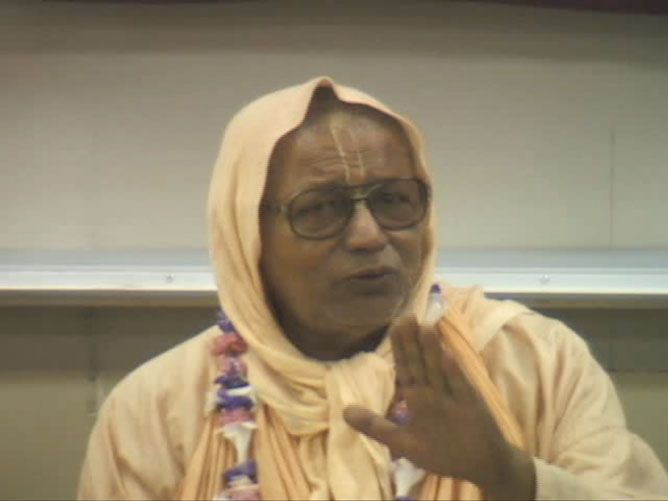THE SEEKER’S GUIDE
OUR PRECIOUS HUMAN LIFE
Human life is a limited-time only, invaluable opportunity for every one of us.
Read this and make the best possible use of it now!
Here we will overview:
- The unique capacity of human life
- The principal characteristics of human life
- The purpose of human life
By understanding these essential points, we can be sure that we are making the best possible use of our precious human life.
The unique capacity of human life
Human life has been described as the budding stage of consciousness[1]. Animals, plants, and other entities are sentient beings just as human beings are. Their consciousness, however, is suppressed. In human life, consciousness is found to begin the higher stages of its full expression just as a bud is the beginning of a flower blossoming. When we utilise our human life according to its unique capacity, we realise our full potential and the beauty of our true nature is manifest just as a flower blossoms and beautifies the environment.

But what is that budding? What is that unique capacity found only in human beings? This is twofold: (1) advanced intelligence, that is, developed ability to reason and discriminate, and (2) the capacity to perceive spirit and divinity[2]—the capacity to be a recipient of revelation. With such capacity, human beings can recognise and discriminate between:
- spirit and matter
- the self and non-self
- truth and untruth
- dharma and adharma
- good and bad
- right and wrong
- benefit and harm
- harmony and disharmony
- divinity and mundanity
Apart from this distinguishing capacity, there are no differences between human life and animal life.[3]
The principal characteristics of human life
Difficult to attain
Firstly, human life is said to be difficult to attain[4] because of its rarity: human beings are a very small minority amongst all the varieties of species found throughout the world. Secondly, human life is difficult to attain because it is impossible to attain by our own efforts alone. Thirdly, human life is difficult to attain because it is typically attained only after thousands of births in other life forms and all the prolonged struggle therein.
Easily attained
Human life is also said to be easily attained[5]. This is because human life is attained by good fortune. The consequences of our actions in previous lives (our karma), the inscrutable will of the Supreme, and the ever compassionate devotees of the Supreme are the causes of good fortune. Because we have received a human body in this birth but do not recall the conditions of our previous life and all that took place to bring it about, human life feels as though it is easily attained. Let us not take it for granted!
Temporary
Human life is impermanent[6]. Everything that is born is certain to die[7], and human life is no different. The human body is a temporary combination of the elements and at death begins to dissolve back in to them.
Unsteady
While we can be certain that human life is temporary, can we be certain of how and when its inevitable end will come? No! It can easily be lost in a moment[8], at any moment, and under any circumstances—despite any and all precautions we may take.
Troublesome
Human life is never without difficulty[9]. Just to be free from discomfort and distraction, we need to adjust our posture every few minutes, eat and drink every few hours, rest and exercise every day, and protect ourselves at all times from illness, pollution, temperature changes, and overexposure to any of the elements. There are countless measures to be taken at nearly every step in life to avoid suffering, and despite all of them it is impossible to avoid the suffering of birth, death, old age, and disease. Moreover, various psychological ailments afflict us irrespective of our external circumstances: lust, anger, greed, pride, attachment, envy, and so forth.
Highly valuable
Human life is highly valuable[10] because only within human life do we have the opportunity to attain the highest good. Living beings in other species are indeed gradually on their way towards realisation of their ultimate potential, but it is only in human life that this can be consciously cultivated and realised in full. Only in human life do we have the capacity to realise our true self, to consciously adhere to the natural harmony of existence (dharma), to receive and adhere to revelation from the spiritual plane, and to develop our loving relationship with the Supreme.
The purpose of human life
In Srimad Bhagavatam[11], Lord Krishna compares the human body to a well-constructed boat and samsara, material existence, to an ocean over which this boat is meant to cross. The captain of the boat is Sri Guru, the spiritual guide, and the wind propelling the boat is the Lord’s grace.

Human life is thus the perfect opportunity:
- It is the sure and ideal means to pursue the highest good
- It provides everything necessary to succeed
- It is in your hand at this moment
So, the only question that remains is: are you a seeker? Are you ready to leave your present position in pursuit of your highest prospect? Are you ready for the ultimate adventure?
Conclusion
Human life is unique, extremely rare, and comes to us only as a result of tremendous good fortune. It lasts for a limited time only and can be lost at any moment. It contains inherent adversity, but nevertheless is an invaluable opportunity. What should we do with it? Use it! Immediately! Don’t waste a minute of it. From this very moment and as long as you live, use your precious human life to endeavour for the highest good![12]
Related reading
See Rare human birth in Chapter Eight of Revealed Truth
Endnotes
1: Sri Chaitanya-siksamrta by Srila Bhakti Vinod Thakur
2: Srimad Bhagavatam (11.9.28) states: brahmavaloka-dhisanam: intelligence with the capacity to perceive Brahma (spirit, divinity, the Lord).
3: Hitopadesa: Mangalacharanam, 25
4: Durlabha and sudurlabha as found in Srimad Bhagavatam 7.6.1, 11.2.29, 11.9.29, and 11.20.17.
5: Sulabha as found in Srimad Bhagavatam 11.20.17.
6: Anitya as found in Srimad Bhagavatam 7.6.1 and 11.9.29; adhruva as found in Srimad Bhagavad-gita 9.33.
8: Ksana-bhangura as found in Srimad Bhagavatam 11.2.29.
9: Arty-udarka as found in Srimad Bhagavatam 11.9.25; asukha as found in Srimad Bhagavad-gita 9.33.
10: Arthada as found in Srimad Bhagavatam 11.9.29; adya as found in Srimad Bhagavatam 11.20.17.
11: Srimad Bhagavatam: 11.20.17
12: Srimad Bhagavatam: 11.9.29
Verses for reflection
labdhva sudurlabham idam bahu-sambhavante
manusyam arthadam anityam apiha dhirah
turnam yateta na pated anumrtyu yavan
nihsreyasaya visayah khalu sarvatah syat
(Srimad Bhagavatam: 11.9.29)
“Human life is extremely rare, attained only after many births in this world,highly valuable, and temporary. The wise, therefore,so long as their body has not fallen to its inevitable death, should immediately endeavour for the highest good. Sense enjoyment can be had everywhere (in all forms of life).”
ahara-nidra-bhaya-maithunam cha
samanyam etat pasubhir naranam
dharmo hi tesam adhiko viseso
dharmena hinah pasubhih samanah
(Hitopadesa: Mangalacharanam, 25)
“Eating, sleeping, fearing, and mating—these are common to animals and humans. Dharma is the distinguishing quality of human beings. Without dharma, humans are no different from animals.”
nr-deham adyam sulabham sudurlabham
plavam sukalpam guru-karna-dharam
mayanukulena nabhasvateritam
puman bhavabdhim na taret sa atma-ha
(Srimad Bhagavatam: 11.20.17)
“Having attained the well-constructed boat of this human body, which is fundamental (to all attainments), easily yet rarely attained, captained by Sri Guru, and propelled by the wind of My grace, a person who does not cross the ocean of material existence is simply a destroyer of their own self.”
durlabho manuso deho dehinam ksana-bhangurah
tatrapi durlabham manye vaikuntha-priya-darsanam
(Srimad Bhagatavam: 11.2.29)
“For an embodied being, a human body, which can perish within a moment, is rare, but I consider even more rare than this the association of those who are dear to the Lord.”
kaumara acharet prajno dharman bhagavatan iha
durlabham manusam janma tad apy adhruvam arthadam
(Srimad Bhagatavam: 7.6.1)
“From childhood, the wise should engage in the practices of the devotees. In this world, human birth is rare, temporary, and highly valuable.”
sukham aindriyakam daitya deha-yogena dehinam
sarvatra labhyate daivad yatha duhkham ayatnatah
(Srimad Bhagatavam: 7.6.3)
“As living beings everywhere (in all species) as a result of their destiny encounter distress without endeavouring for it, so also they encounter pleasure produced by the senses just by being embodied.”
tat-prayaso na kartavyo yata ayur-vyayah param
na tatha vindate ksemam mukunda-charanambujam
(Srimad Bhagatavam: 7.6.4)
“No endeavour should be made for pleasure. One’s life is only wasted thereby. One attains the highest good not in pleasure but in the lotus feet of Krishna.”
tato yateta kusalah ksemaya bhayam asritah
sariram paurusam yavan na vipadyeta puskalam
(Srimad Bhagatavam: 7.6.5)
“Therefore, the wise, who are fearful (of falling from their position), should endeavour for the highest good as long as their healthy human body has not fallen away.”
jatasya hi dhruvo mrtyur dhruvam janma mrtasya cha
(Srimad Bhagavad-gita: 2.27)
“As death is certain for those who are born, so birth is certain for those who have died.”
anityam asukham lokam imam prapya bhajasva mam
(Srimad Bhagavad-gita: 9.33)
[Lord Krishna:] “Having attained this temporary, troublesome body, engage in service to Me.”








